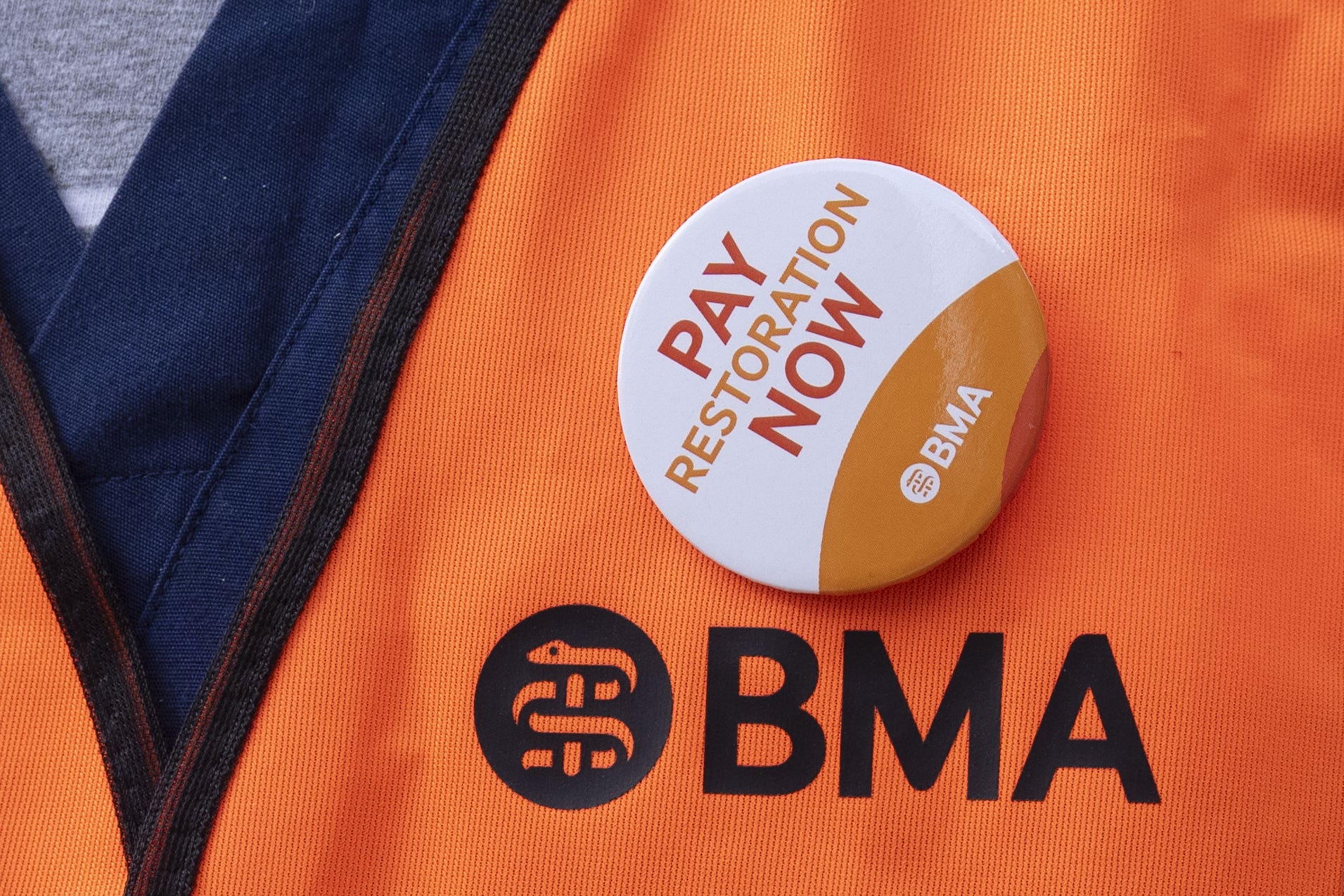Sympathy for Government weakens as public-sector strikes go on, poll shows
It comes as medics announce a further wave of industrial action and rail workers walk out.

Your support helps us to tell the story
From reproductive rights to climate change to Big Tech, The Independent is on the ground when the story is developing. Whether it's investigating the financials of Elon Musk's pro-Trump PAC or producing our latest documentary, 'The A Word', which shines a light on the American women fighting for reproductive rights, we know how important it is to parse out the facts from the messaging.
At such a critical moment in US history, we need reporters on the ground. Your donation allows us to keep sending journalists to speak to both sides of the story.
The Independent is trusted by Americans across the entire political spectrum. And unlike many other quality news outlets, we choose not to lock Americans out of our reporting and analysis with paywalls. We believe quality journalism should be available to everyone, paid for by those who can afford it.
Your support makes all the difference.The Government is not doing enough to negotiate with workers to prevent strikes, according to a new poll, with junior doctors retaining public support as they prepare for a fresh wave of industrial action.
It comes as medics announced the first joint strike in the history of the NHS, which is expected to bring widespread disruption in September and October.
More than half (53%) of 1,000 adults in Britain surveyed by Ipsos said they supported junior doctors – down three points since the last poll in June – while 31% are against the strikes.
Consultants continue to divide public opinion, with 44% opposing strikes by senior medics compared to 38% who support action.
Support for consultants is in line with rail workers, with 43% opposing strikes and 36% supporting them.
However, 57% of those who responded to the Ipsos poll said they felt the Government is doing a “bad job” of negotiating with workers to prevent walkouts, up six points compared to June.
Some 17% think Prime Minister Rishi Sunak is doing “a good job” when it comes to talks.
Gideon Skinner, head of political research at Ipsos UK, said: “Britain continues to face strike action as we enter the autumn and there is continuity in public attitudes towards them too.
“The strikes by railway workers and consultant doctors divide opinion, with opposition tending to outweigh support, but there is more sympathy for other striking NHS workers such as junior doctors.
“There is much less sympathy for the Government, who most Britons think is doing a bad job at handling the negotiations to put an end to these public-sector strikes.”
The Government has said junior doctors would get pay rises of 6%, along with an additional consolidated £1,250 increase, and hospital consultants will also receive 6%.
Health Secretary Steve Barclay said the “pay award is final”.
On Thursday, the British Medical Association (BMA) said junior doctors will be joining their senior colleagues in co-ordinated strike action later this month.
Consultants had already announced a 48-hour strike, starting on September 19, and will now be joined by junior medics on September 20.
Junior doctors will then continue their walkout into September 21 and September 22.
On October 2, 3 and 4, both consultants and junior doctors will strike together in what has been described as a “serious escalation” in their bitter dispute with the Government.
Mr Barclay urged “the BMA to call an end to this callous and calculated disruption”.
Elsewhere in the public sector, train drivers represented by Aslef walked out on September 1, with an overtime ban on September 2.
Staff represented by the RMT union are also set to walk out on September 2.
The Ipsos survey showed the strongest support from the public would be for strikes by nurses (63%) and ambulances workers (60%).
Some 45% of people also think employers hold too much power in Britain while 57% said workers do not have enough power.
The Department of Health and Social Care and the Department for Transport have been approached for comment.